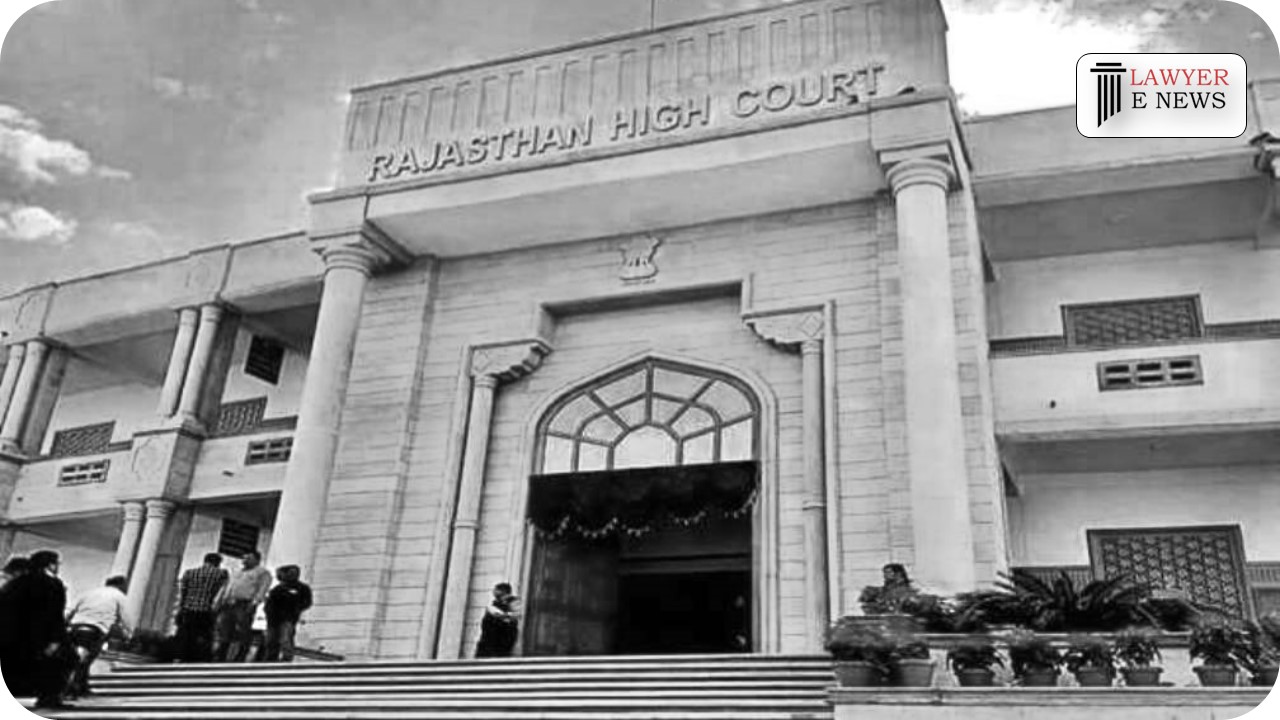-
by Admin
16 February 2026 1:47 PM



In a significant judgment, the Rajasthan High Court, presided over by Hon'ble Mr. Justice Anoop Kumar Dhand, strongly criticized the state authorities for their illegal and arbitrary act of withholding pension and other retiral benefits of a retired employee for over five years. The court's scathing observations came during the hearing of the case titled Dayachand Arya v. State of Rajasthan.
The High Court remarked, "Withholding of pension and other retiral benefits of a retired employee for years together is not only illegal and arbitrary act but also a sin though not an offence since no law has declared so."
The case revolved around the petitioner, Dayachand Arya, a retired employee who had not received his rightful pension and retiral benefits since his retirement in January 2018. Despite repeated attempts to obtain his dues, Arya was left with no choice but to approach the court for redressal of his grievance.
The court expressed shock and surprise at the state authorities' failure to release the retiral dues, especially considering that there were no pending criminal cases or departmental inquiries against Arya. The withholding of the dues was deemed high-handed and liable to be deprecated by the court.
Referring to previous landmark judgments, including those by the Constitutional Bench of the Supreme Court, the court emphasized that pension is a right earned by an employee through long, continuous, faithful, and unblemished service. The court firmly stated that the grant of pension does not depend on the discretion of the government but is governed by statutory rules.
Rajasthan High court reiterated, "The grant of pension does not depend upon anyone's discretion. The right to receive pension flows to the officer not because any order of the authority is required but by virtue of statutory Rules. This view was reaffirmed by the Hon'ble Supreme Court... This right to property cannot be taken away without the due process of law."
The court further highlighted that pension and gratuity are not mere bounties but hard-earned benefits that accrue to an employee. It condemned the state authorities for their failure to release the retiral dues, despite the availability of the petitioner's service record in their offices.
Observing the anguish and suffering faced by retired employees and their families in such circumstances, the court stated, "The pain and torture faced by a retired employee and his family in the circumstances created by the authorities can be easily visualized and felt but cannot be assessed in the way only those who really suffer know it. This pain and humiliation cannot be compensated in terms of money."
In its ruling, the court directed the respondents, the state authorities, to release all the retiral benefits to the legal representatives of the deceased petitioner within 30 days from the date of receipt of a certified copy of the order. The court also ordered the payment of interest at a rate of 9% per annum from the date of the petitioner's retirement until the actual payment of the dues.
Furthermore, as a form of compensation for the harassment caused by the authorities, the court imposed a cost of Rs. 50,000 on the respondents. This amount is to be paid to the widow of the deceased employee at the time of the retiral benefits' payment. The court emphasized that no government official should have the liberty to harass employees by withholding their lawful dues.
The court's judgment serves as a reminder that pension is a valuable right of government servants and cannot be withheld without due process of law. It sends a strong message to the authorities that arbitrary withholding of pension and retiral benefits is illegal, arbitrary, and against the principles of social and economic justice.
The judgment also highlights the court's commitment to ensuring that retired employees receive their rightful dues in a timely manner and that suitable compensatory relief is provided for any undue delay or harassment caused by the authorities.
Date of Order: 17th February 2023
DAYACHAND ARYA VS STATE OF RAJASTHAN
